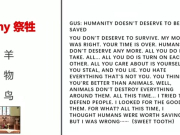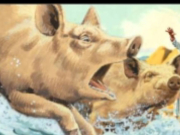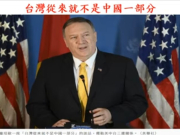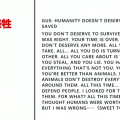|
|
 發表於 2007-3-29 15:32:17
|
顯示全部樓層
發表於 2007-3-29 15:32:17
|
顯示全部樓層
另類思考
Corn is Not the Future of U.S. Ethanol - DOE
Source: Reuters
(dated 29/03/2007)
New York, March 29 2007 - New technology to make ethanol from crops such as grasses and trees instead of corn could ease price spikes of the grain within a decade, a U.S. Energy Department official said on Wednesday.
"I'm not going to predict what the price of corn is going to do, but I will tell you the future of biofuels is not based on corn," U.S. Deputy Energy Secretary Clay Sell said in an interview.
Output of U.S. ethanol, which is mostly made from corn, is expected to jump in 2007 from 5.6 billion gallons per year to 8 billion gpy, as nearly 80 bio-refineries sprout up.
Corn prices have doubled over the last year as the Bush administration, seeking to reduce oil imports while boosting output of fuels believed to cut greenhouse gas emissions, offers millions of dollars in incentives to boost ethanol production.
The corn prices, the highest in a decade, have spurred thousands of people in Mexico to protest over the price of tortillas, a national staple made from corn. The spike has also lead to worries that meat and dairy prices could eventually rise.
Sell said the future of biofuels is cellulosic ethanol, made from microbes that break down woody bits of non-food crops into sugars that can be fermented into fuel.
Cellulosic, and other new biofuels such as biobutanol, which can be made from petroleum as well as biomass, could begin to feed the commercial fuel market within six to 10 years, he said. They could also be part of a larger program to cut greenhouse gases, he added.
The new fuels are much pricier than conventional ethanol, but relief would come through U.S. investment in research and development.
"We are going to get significant breakthroughs that can conceivably bring down the cost of cellulosic ethanol production down by an order of magnitude," Sell told Reuters.
Amid growing pressure to cut emissions in the world's biggest producer of greenhouse gases, the Bush administration is also putting research and investment money into clean coal, and energy efficiency.
Sell rejected the idea that a national mandatory cap on emissions could shift the burden of the development of low- emissions domestic fuels from government to markets by creating trade in credits for the right to pollute.
Potential 2008 U.S. president contenders from both parties support such programs, as do growing numbers of energy experts and companies. But President George Bush opposes mandatory caps on emissions, saying they would hurt the U.S. economy.
Sell said the United States, as the world's top energy consumer and economy, was not morally obliged to lead rapidly developing countries.
He said such measures would keep "hundreds millions of people in poverty" in China and India. Those countries are not obliged to place mandatory cuts on emissions under any international agreement.
[ 本帖最後由 Peetles 於 2007-3-29 17:22 編輯 ] |
|















 IP卡
IP卡 狗仔卡
狗仔卡 發表於 2007-3-13 15:54:30
發表於 2007-3-13 15:54:30
 提升卡
提升卡 置頂卡
置頂卡 沉默卡
沉默卡 喧囂卡
喧囂卡 變色卡
變色卡 搶沙發
搶沙發 千斤頂
千斤頂 顯身卡
顯身卡 [信息未更新]
[信息未更新] 發表於 2007-4-3 08:25:00
發表於 2007-4-3 08:25:00







